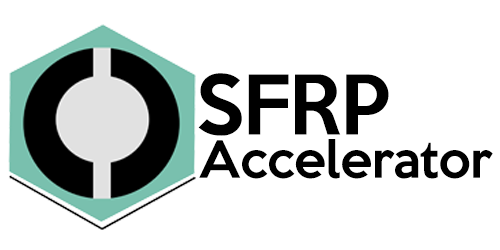As we continue to track policy developments that influence the affordable housing landscape, the recent passage of the “One Big Beautiful Bill Act” (H.R.1) marks a major milestone. Signed into law on July 4, 2025, this budget reconciliation package passed both chambers of Congress, but notably, did not enact the sweeping HUD rental assistance cuts or program consolidations originally proposed in President Trump’s FY2026 budget request.
This third entry in our ongoing analysis examines the actual content of the law, what it didn’t do, and how it sets the stage for the FY2026 appropriations battle that lies ahead. For single-family rental (SFR) investors and operators focused on Housing Choice Voucher (HCV) tenants, the implications remain dynamic.
What Passed: Key Takeaways from the Final Law
- No Direct Cuts to Section 8 or Core Rental Assistance: Despite early drafts and rhetoric, the final law does not include the 43% cut to HUD’s rental assistance programs. Programs like Section 8, Project-Based Rental Assistance, and Public Housing remain structurally intact.
- Green Retrofit Rescission: The only HUD-related cut was a $5.2 billion rescission from the Green and Resilient Retrofit Program (GRRP), which targets energy efficiency, not tenant rental support.
- LIHTC Expansion: The law permanently boosts 9% Low-Income Housing Tax Credit (LIHTC) allocations by 12% and lowers the bond test for 4% deals from 50% to 25%. Novogradac estimates this could help finance up to 1.22 million new affordable units over the next decade.
- Bonus Depreciation Reinstated: Full 100% bonus depreciation is restored for qualifying multifamily assets placed in service between 2025 and 2030, encouraging private investment in rental housing.
- Opportunity Zone Extensions: The program has been extended permanently, supporting continued investment in economically distressed communities.
What Didn’t Pass: HUD Block Grant and Time Limit Proposals
Importantly, the legislation did not include:
- A consolidation of HUD rental programs into state-level block grants (SRABG)
- A two-year time limit on rental assistance for non-disabled, non-elderly adults
- Elimination of the Emergency Housing Voucher (EHV) program
These controversial proposals remain under consideration in the FY2026 appropriations process, not the reconciliation law. The House Transportation-HUD (THUD) markup is scheduled for July 14 and 17. The Senate has not released its schedule but is expected to offer more moderate counterproposals.
HUD Secretary Scott Turner has defended the proposed reforms, describing HUD rental assistance as a system “full of waste, fraud & abuse” and reiterating that the support “should be a trampoline, not a hammock or resting place.”
The Bigger Picture: Fiscal Pressure Ahead
The new law implements $1.1 trillion in spending cuts (largely from Medicaid and SNAP) alongside $3–$3.4 trillion in tax reductions, with critics like the Congressional Budget Office noting the net effect as a significant deficit increase. Analysts and housing advocates warn that this fiscal dynamic may place added pressure on discretionary programs like HUD rental assistance in future spending cycles.
As of now, the federal government continues to operate under a series of continuing resolutions (CRs) for FY2025. Final appropriations for HUD programs—including HCV, PBRA, and homelessness grants—have not yet been passed. The CBO and advocates warn that failure to fully fund voucher renewals could place over 10 million individuals, including 5.6 million children, at risk of housing instability.
The Senate’s proposed FY2025 THUD bill would increase overall HUD funding by over 10%, including a $268 million boost for Homeless Assistance Grants, reflecting a different posture than the House’s initial position. These negotiations will shape the fiscal terrain for FY2026.
A Steady Role for Scattered Site SFR
With large-scale LIHTC developments still years away from delivery, scattered site SFR portfolios remain the most immediate and scalable way to provide affordable housing—especially in metro markets where demand continues to outstrip supply.
This strategy provides:
- Speed to occupancy
- Geographic diversity for tenants
- A hedge against volatility, given rent floors via housing subsidies
These benefits make scattered site SFR particularly compelling as the policy environment continues to evolve.
Homestead Affordable: Focused on Execution
At Homestead Affordable, we view the current policy moment as one that demands clarity of purpose and operational readiness. The preservation of core HUD programs in the One Big Beautiful Bill Act provides short-term stability, while the FY2026 appropriations process presents medium-term uncertainty.
We remain committed to our mission: to provide high-quality, affordable housing to families in Texas, Georgia, Arizona, Florida, and California. Our strategy is grounded in optionality—allowing us to respond effectively to regulatory, fiscal, and economic conditions without sacrificing mission integrity.
We will continue to monitor both the policy landscape and market fundamentals closely. In the meantime, scattered site SFR continues to deliver real value—measurable, immediate, and resilient.
Sources:

